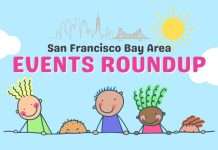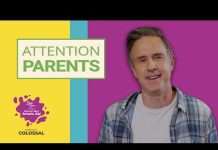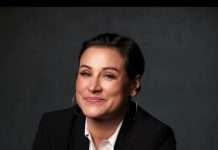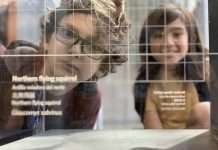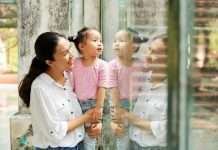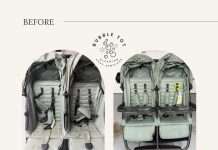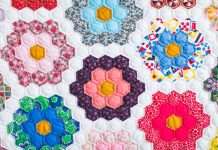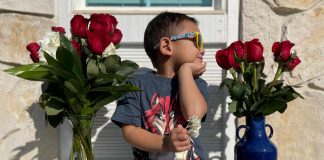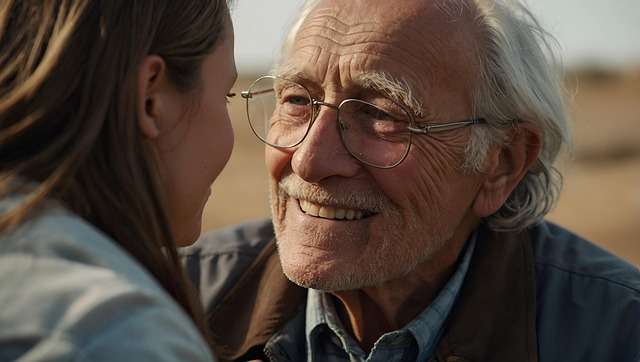
My sons were three and six months old when my dad passed away from early-onset Alzheimer’s. Eleven months later, my brother celebrated his first Father’s Day—without our dad. It was bittersweet.
Losing a parent can make days like Mother’s Day or Father’s Day challenging. Like most days, these holidays come with a mix of emotions. That’s the tricky part about losing someone you love, especially when it feels too soon—how do you grieve, cope, and celebrate all at the same time?
For me, I try to channel my dad. He was involved in his kids’ lives long before it was trendy—ahead of his time, really. He taught us invaluable lessons, not through big speeches, but through his steady presence and calm demeanor. On this Father’s Day—and the many ordinary days throughout the year—I keep coming back to four key lessons.
Be present.
My parents had a true partnership in raising us. For them, that meant prioritizing class visits, sporting events, mock trial competitions (nerd alert), and everything in between. It also meant listening—really listening—to all the feelings that came with raising daughters like me and my sister. My dad nodded along through our rants and raves, even when we were long-winded or dramatic. Their presence wasn’t performative—it was just part of the deal. And looking back, it made all the difference.
Stay calm.
My dad was steady in the face of almost anything. He let small stressors pass and only asserted himself when it truly mattered. On his last visit to New York, there was chaos: my older son was on the floor, overwhelmed by not being an only child anymore; the baby was screaming—torn between hunger and exhaustion; and my dad was pacing, trying to remember where he’d left his sandwich. I was sleep-deprived, hormonal, and seriously questioning our decision to have two kids. After finding another snack, he walked back in, glanced around, rolled his eyes, and said, “Psst… you OK?” I smiled. “Yes, Dad.” That was his way of reminding me: this is just a moment. It will pass. Life is full of stress, but it doesn’t have to shape your behavior. Be patient—with your kids, and with yourself.
Have compassion.
My dad was rarely judgmental and often gave people the benefit of the doubt. He was especially supportive of kids—both in his work and in our family. He understood that each of us had different emotional needs and met us where we were, with whatever expression of love we needed in that moment. He didn’t expect us to act a certain way or respond on his timeline. One of us might need space, another reassurance, and he adapted accordingly. That flexibility was one of the most powerful lessons he taught me. You can’t treat all kids the same—you have to pay attention, meet them where they are, and respond with empathy, even when it takes extra time or effort.
Find contentment.
My dad was secure in who he was and in what he had. That security was steadying for the rest of us. I think we each believed we could succeed in whatever we pursued because we knew we had a solid foundation to fall back on. He was thrilled when those he cared about succeeded and took genuine pride in our wins—big or small. His happiness was tied to ours, and he did what he could to make sure we had what we needed and didn’t go without. That sense of contentment wasn’t about settling; it was about recognizing enough. I try to recreate that for my kids—a life where they feel supported, safe, and rooted in what matters.
Not everyone who loses a parent loses someone they want to remember. And not everyone is ready or able to find light in the sadness. Nearly every day, I still remind myself to WWDD—“What Would Dad Do?”—because his way of being doesn’t always come naturally to me. Grief isn’t linear. It’s messy and complex, and it lives alongside joy, frustration, fear, and fun.
Here’s to the dads. The ones we remember. The ones we miss. The ones we’re learning from, even now. And here’s to the partners showing up every day for their kids with love, humor, and patience. Watching my husband parent our children has been its own quiet gift—one my dad would have deeply appreciated.
_____________________________________________
Rachael Piltch-Loeb was inspired by her family’s experience coping with caregiving and the lack of informational resources out there during that process. By day, Dr. Piltch-Loeb is a public health expert in research, measurement, and evaluation in public health emergencies. She holds a PhD in public health from NYU, a MSPH from the Bloomberg School of Public Health at Johns Hopkins University, and BS from Georgetown University, and currently has academic appointments at the CUNY Graduate School of Public Health and the Harvard TH Chan School of Public Health. She is the author of dozens of journal articles related to public health research and practice. Dr. Piltch-Loeb has consulted for private companies and professional organizations and been cited as an expert in international publications including BBC, the New York Times, Reuters, National Geographic, the Atlantic, and Bloomberg News. She is based in New York City where she lives with her children and her husband, Shahnawaz. She is a former caregiver and an aging millennial.



